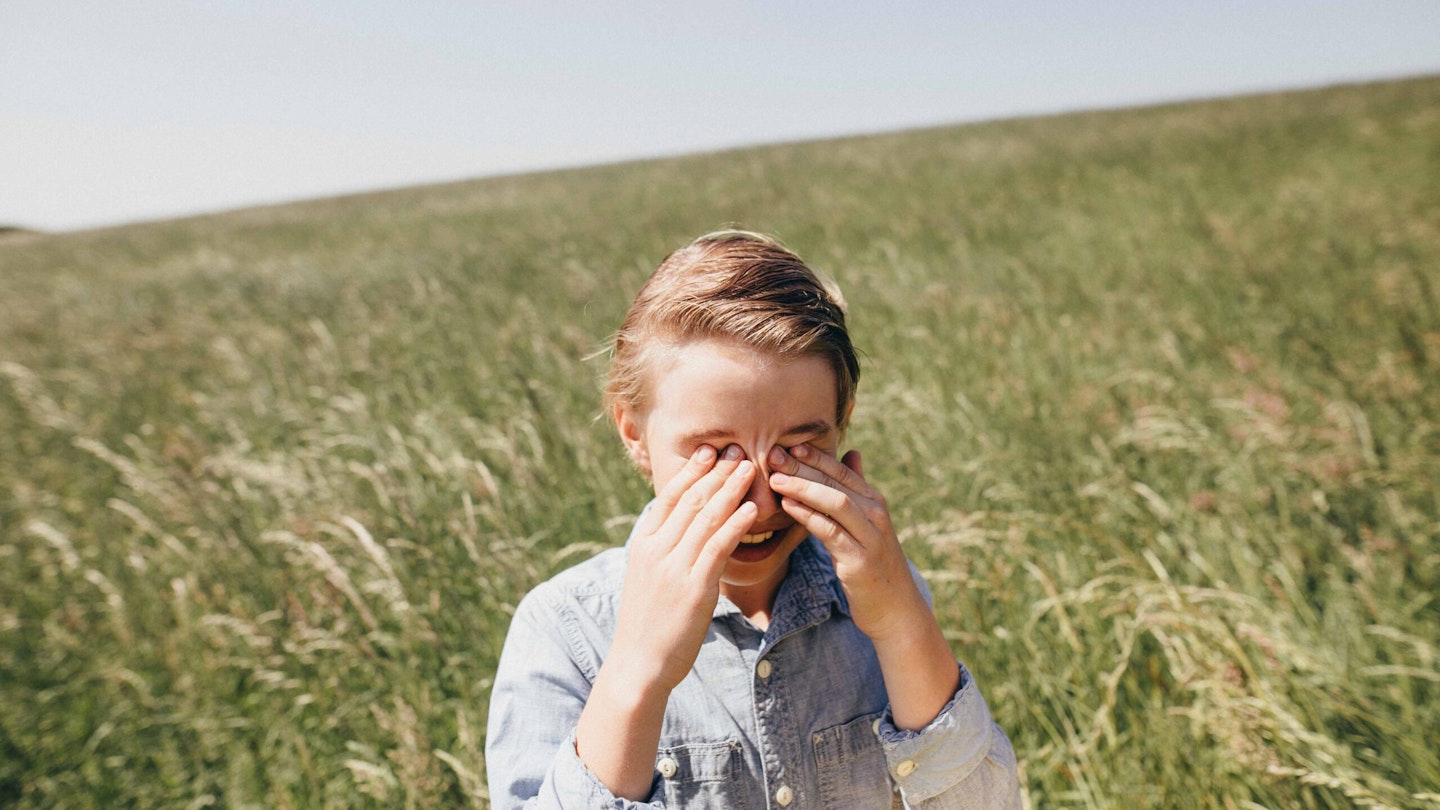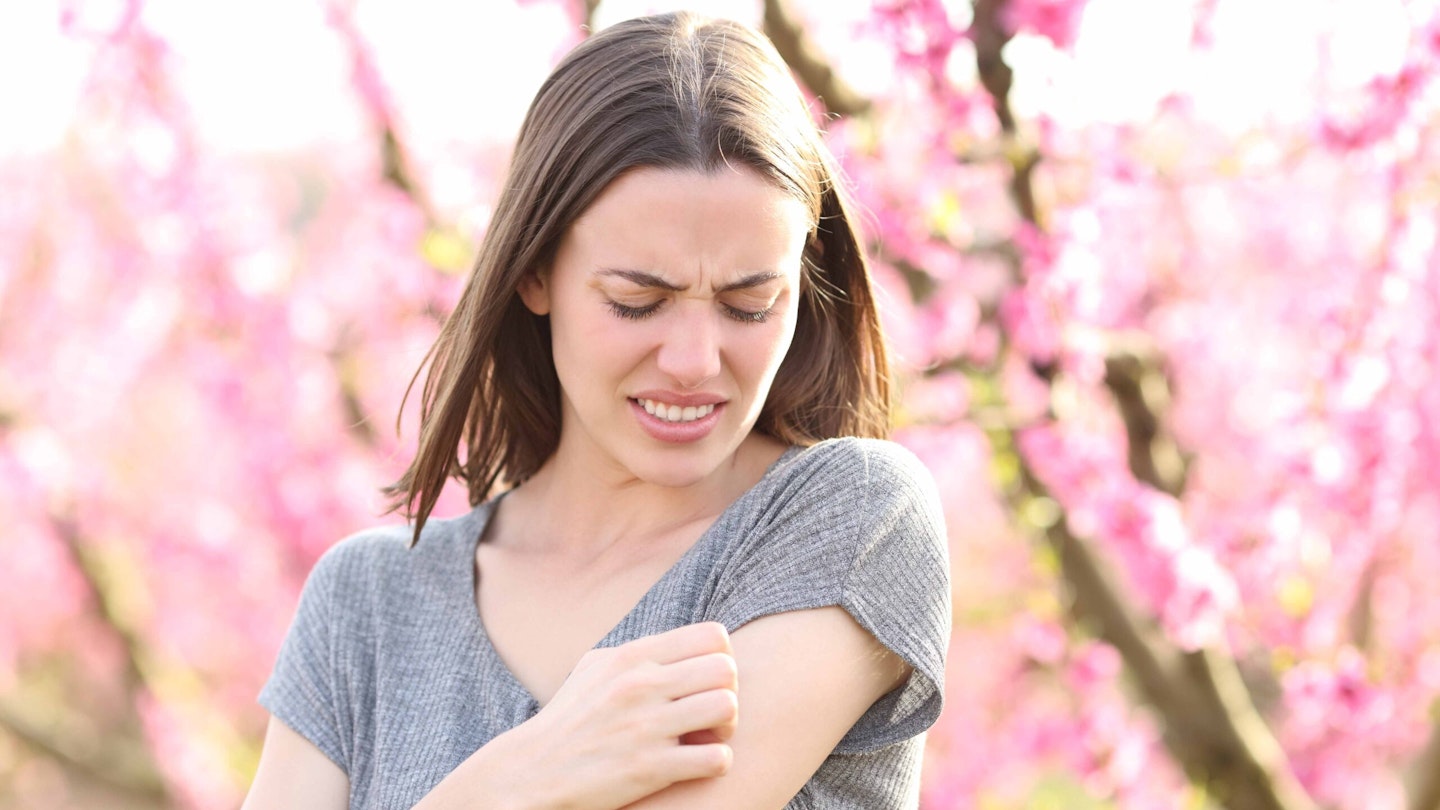If you’re one of the 16 million people in the UK who suffer from hayfever, you’ll know the usual drill – itchy eyes, sneezing fits, and a nose that just won’t stop running. But beyond the familiar symptoms, hayfever could also be silently affecting your skin — and even accelerating the signs of ageing.
New research has also started to uncover connections between hayfever and gut health, suggesting that what’s happening inside the body may influence how your skin reacts on the outside. While many people turn to natural remedies for hayfever, experts are now warning that common habits – like rubbing your eyes or constantly blowing your nose – could be contributing to dryness, redness, and fine lines.
We spoke to Dr Nikita Desai from Harley Street Skin Clinic, who revealed five surprising ways hayfever can damage skin — and the steps you can take today to protect your complexion.

1. Rubbing your eyes can cause wrinkles
Itchy, watery eyes are a hallmark of hayfever, but constant rubbing can weaken the delicate collagen and elastin around the eyes, leading to sagging skin and fine lines. “The skin here is so fragile, and repeated rubbing can cause long-term damage,” says Dr Desai.
2. “Allergic shiners” can make you look tired
Ever noticed dark circles under your eyes during hayfever season? Known as “allergic shiners”, these occur when tiny blood vessels break due to rubbing or inflammation, leaving a shadowy, bruised look that can age the face.
3. Blowing your nose can cause dryness and breakouts
Frequent nose-blowing can leave skin around the nose cracked, sore, and vulnerable to bacteria — leading to breakouts. Harsh tissues only make matters worse, stripping away protective oils and damaging the skin barrier.
4. Pollen can directly irritate skin
When pollen triggers histamine release, it can cause redness, itchiness, and flare-ups of conditions like eczema. “Histamine dilates blood vessels, making the skin more reactive and inflamed,” explains Dr Desai.
5. Poor sleep makes skin look older
Hayfever doesn’t clock off at bedtime. Night-time symptoms can interrupt sleep, which is essential for skin repair. “A lack of quality sleep weakens the skin barrier, reduces moisture retention, and accelerates visible ageing,” says Dr Desai.

How to protect your skin during hayfever season
Dr Desai recommends a few simple steps to reduce irritation and keep skin looking its best:
Soothe with eye drops – reduce itchiness and the urge to rub.
Take antihistamines – block histamine production to ease symptoms.
Apply a cold compress – It also offers an instant hayfever remedy when symptoms are flaring, especially around the delicate eye area.
Use SPF and gentle moisturisers – protect against dryness and sun damage.
Try nasal sprays – reduce congestion and sneezing to protect delicate skin.
Bottom line: If you’ve been wondering can hayfever damage skin? — the answer is yes. But with the right care, you can minimise the effects, protect your complexion, and enjoy the summer without letting pollen take its toll.
Claire Tapleyis a digital editor for Yours.co.uk. She is a journalist with over 16 years' experience writing for women over 50. In her previous role she was deputy editor on Yours magazine for nine years, before moving over to Yours.co.uk.
